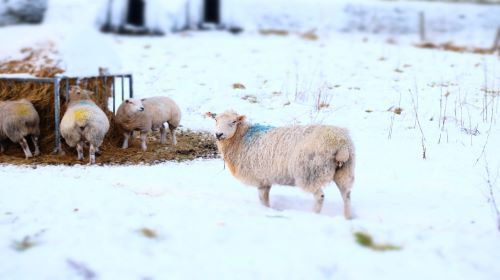
23 December 2022
Livestock farms in England polluted rivers 300 times in 2021. Government figures show that through slurry and run-off from fields, livestock farms polluted rivers numerous times but the Environment Agency prosecuted only six farms in 2021 for the pollution. Farmers are making efforts to improve soils and reduce the likelihood of run-off with support from Defra via the Catchment Sensitive Farming programme.
The amount of agricultural land used for food production in England and Wales in 2022 decreased by 2.2% to 16.8 million hectares. This saw land used for crops decrease by 3% to 6 million hectares while arable land that was not used for crops rose 0.1%.
The number of earthworms in the UK may have declined by 33% to 41% in the last quarter of a century. Research by the British Ecological Society concluded that there is a need for better monitoring of soil invertebrates, with their research involving analysis of over 100 years of scientific studies on soil invertebrate abundance and finding evidence of a major decline in the UK earthworm population.
A report by the universities of Cambridge, Leeds, and Glasgow highlights that a land-sparing approach where least productive farmland is given over to nature could save taxpayers money. Through the Environmental Land Management Schemes (ELMS), funding some farmland to be taken out of production, the same levels of biodiversity could be achieved with 48% of the money currently earmarked for ELMS and efforts to increase farmland biodiversity.
Extreme weather in the UK this year has impacted crops needed for Christmas including Brussel sprouts. Lincolnshire is a county with very fertile soils but high temperatures during the summer and now sub-zero temperatures have affected the soils and plants leading to reduced Brussel sprout crop yields.Farmers in the US are working with companies to improve and produce cost-effective methods for testing soil carbon. Through trials on dairy farms, soil sampling technology is being used to enable farmers to test their soils so they can demonstrate they are sequestering carbon and meeting targets set, to major food companies that they supply.
New research has urged the UK to use less phosphorus in agriculture. The report argues that high use of phosphorus fertiliser is leading to river pollution and exposing farms to high input costs. It concludes phosphorus use is currently inefficient in the UK and is vulnerable to the concentrated supply chain with a small number of countries, including China and Russia producing phosphorus.
Brazil is using cacao to improve degraded soils. Cacao plantations in the Brazilian state of Para have helped recover over 370,666 acres of degraded land between 1996 and 2021. Cacao trees through agroforestry help maintain soil fertility and biodiversity. The number of plantations are expected to increase.
Several dark chocolates have been found to have high amounts of heavy metals including lead and cadmium. These metals can have damaging impacts on human health, and have been found in dark chocolate sold by Hersheys, Dove, and Lindt, with heavy metals working their way into cocoa through contaminated soils.
This is the last Week in Soil of 2022, our blog will be back on 6th January 2022. You can find our winter newsletter with our main achievements of the year and updates on our policy work here.
We’d like to wish all our readers, supporters and the soil community a Merry Christmas and a happy new year!